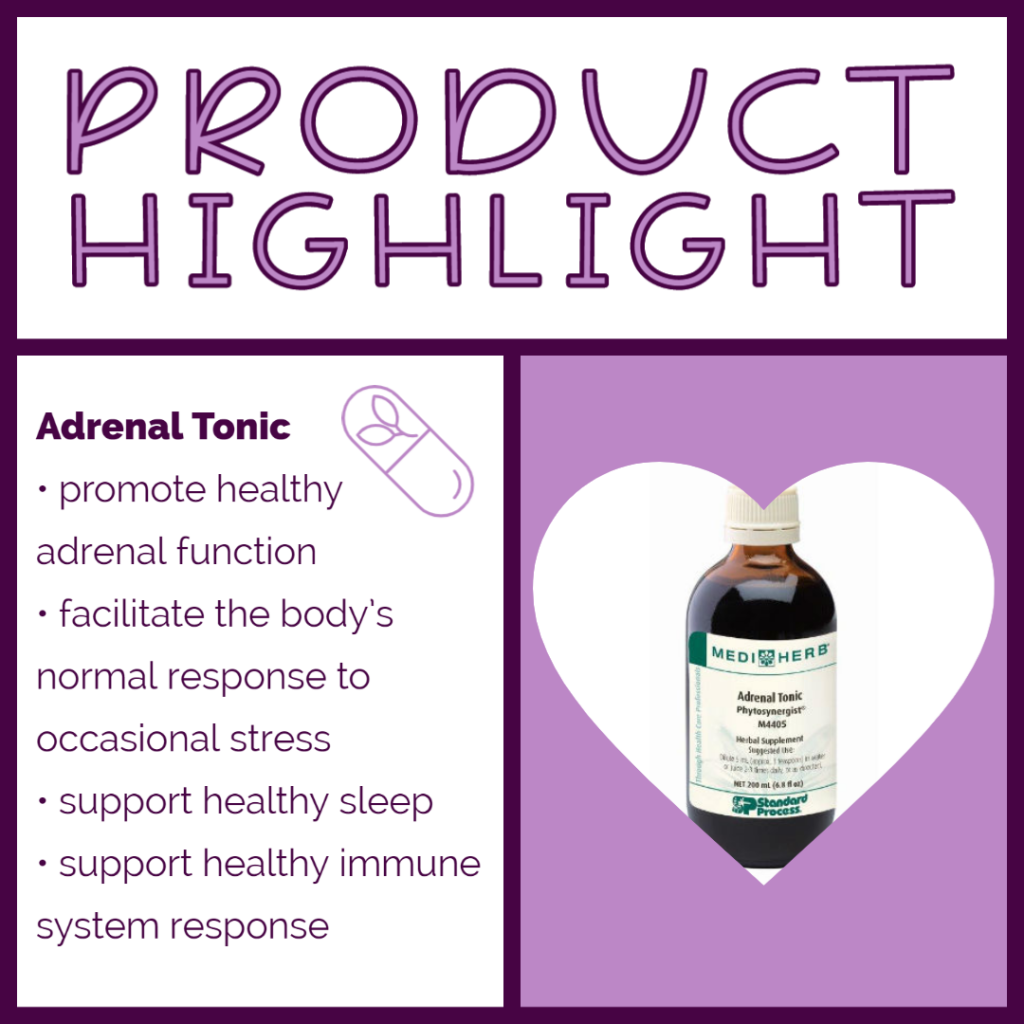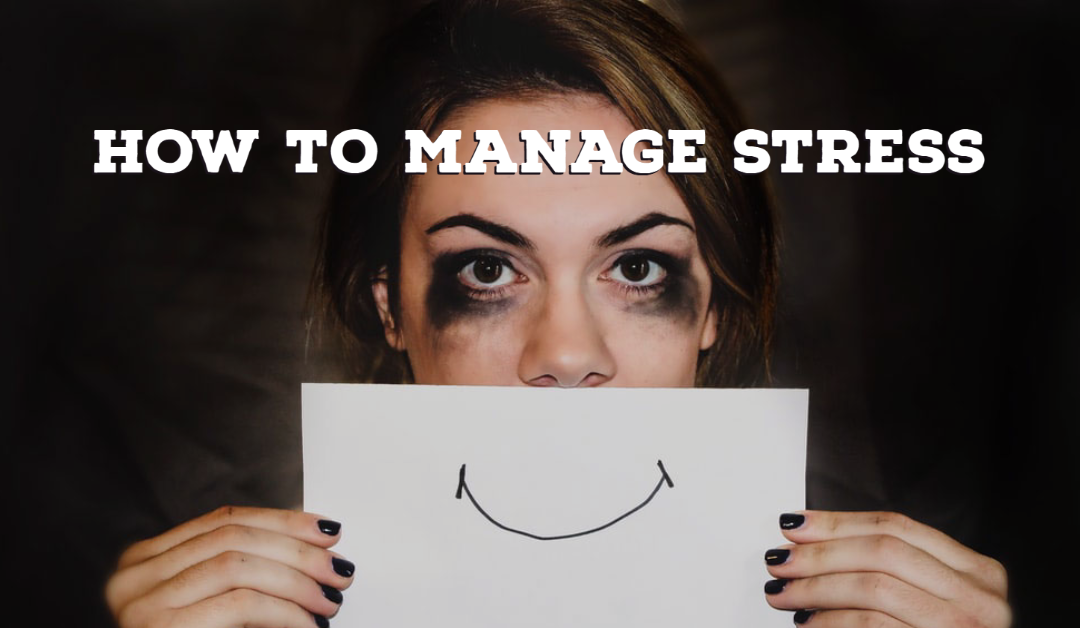If you have school aged children, you’ve probably had a whirlwind few weeks getting them ready to go “back to school.” This is an especially unique time, as a majority of schools in the country are doing virtual learning. This means that your kitchen table is now a desk and instead of sending the kids off to school you are in charge of balancing multiple “class” schedules, troubleshooting tech issues and homework, not to mention your own work and household chores. A LOT is going on and it can be hard to remember to take care of yourself when challenges and stressors arise.
I say “stressors,” but in reality it’s the perception of those stressors that creates a stress response in the body. There are three basic categories of stress (Good, Tolerable, and Toxic) and how long you have been perceiving life events as stressful can determine whether or not it is toxic. Let me give you an example of each.
- Good: Preparing for a vacation or birthday party. This could be a good stressor, short term, no need to go into fight or flight.
- Tolerable: Driving to work. Your perception of this stressor determines if you choose to use the time wisely and listen to an audio book or you devolve into a road rage machine!
- Toxic: This stressor could be acute or chronic. It could be moving, losing a loved one, a break-up, or even a tolerable stressor that continues for a long period of time. Toxic stressors create a physiological change in the body; specifically your brain and your hormones.
Some signs of chronic stress that are noticeable are; fatigue, exhaustion, circles under the eyes, swelling ankles, dizziness, and insomnia to name a few. But there are also other effects on the inside that can’t always be seen such as our brain, gut, hormones and heart. Recent research has shown that for women in particular, stress can increase our risk for heart attack.
How Stress Negatively Affects the Brain
So let’s talk more about the effects of stress going on below the surface, and how that manifest into symptoms we see and experience.
When we are experiencing chronic, toxic stress, one of the most important parts of our body that is affected is our brain; specifically the hippocampus and the pre-frontal cortex shrink. That’s right, stress SHRINKS your brain!
The hippocampus is an area of the brain where we store memories and the pre-frontal cortex is where we rationalize data, assess our environment and make decisions. This shrinking of essential parts of the brain can be the reason why we can be really irrational and forgetful when we are stressed. Those we know with anxiety may have difficulty in school or in their jobs, and this is why! Remember, poor focus is a result of anxiety or stress so we must address the cause, the earlier the better. It’s not just adults that can be affected by stress, but teens and children as well. Many times adults dismiss the idea that children can have stress, but by definition, your stress is their stress. Stress hormones are passed on in mother’s milk and family stress is felt by everyone.
One more thing that chronic stress contributes to is hyperpermeability (another word for leaky) of the blood-brain barrier. Once thought to be a sacred, impermeable barrier protecting our brain from the toxins and trash we put in our body, the blood brain barrier becomes vulnerable. The chemicals put out by a stressed person causes adverse changes in the neuro-vascular system, making it easier for toxins from a leaky gut to make their way via the bloodstream into the brain. This toxic load has been linked to neurodegenerative conditions such as Alzheimer’s, dementia, and ALS (Lou Gehrig’s Disease). Neuro-inflammatory conditions are a hot topic these days, but it’s often a self imposed condition that can be avoided, not an inevitability.
Symptoms of Stress on the Brain:
- Decreased ability to concentrate and focus
- Weakened impulse control
- Reckless behavior
- Irritability
- Impaired decision making
- Anxiety
- Alzheimer’s
- Dementia
- ALS
How Stress Affects the Gut, Sleep and Hormones
When we are in a toxic stress response, it doesn’t only affect our brain, but also our hormones. There are three primary stress hormones: adrenaline, noradrenaline, and cortisol. One or more of these hormones interacts with every cell in the body. The reason it does that is because if we are face to face with danger, the whole body needs to jump into action. So what are some things the body might not need to perform in the face of perceived danger? Well for one, digestion, and another is sleep. Stressed out people tend to suffer from poor digestion and insomnia. How many parents do you know that have poor digestion and are sleep challenged? How many kids?
Chronic stress can have adverse effects on our ability to break down food as well as protect us from pathogens. Elevated cortisol slows the repair of the gut lining, thereby creating a doorway for pathogens to enter the bloodstream. A 2018 study “Frontiers in Neuroendocrinology” by F. Dabhar showed that chronic stress acts as an immunosuppressant, meaning you have impaired wound healing, lowered resistance to infection and cancer, and increased production of inflammatory cytokines. Pro-inflammatory cytokines perpetuate pain and inflammation in the body.
In addition to “stress” hormones, the adrenals are also responsible for producing several other hormones such as: aldosterone which regulates blood pressure, estrogen and progesterone in post menopausal women, anti-diuretic hormone for water balance, cortisol, DHEA, and testosterone. That’s a lot of stuff for two tiny glands each the size of an almond! The body is dependent on these glands to protect us when we are under stress, even at the expense of sacrificing other hormone production. So the longer we remain stressed the lower the production of our supporting hormones. If the adrenals are told that we have stress, production of adrenaline, noradrenaline, and cortisol becomes the priority and the results aren’t pretty. Blood pressure may become dysregulated, we may not make androgenic hormones (sex hormones), and if left untreated, chronic stress can even lead to low T, belly fat, and hot flashes. We really do need to take care of those adrenal glands!
Symptoms of Stress on the Body
- Poor digestion
- Insomnia
- Inflammation
- Lowered resistance to infection
- High blood pressure
- Low libido
- Weight gain (especially belly!)
- Hot flashes
What You Can Do
I expect for some of you reading this, down time may be an issue. You are juggling a lot of responsibilities, and it can be hard to prioritize your health when there are so many other people and things to take care of. But guess what; you can’t take care of anyone if you don’t take care of yourself! The act of self-care has never been more important. Having lived out of the country in slower paced environments, I can tell you there is benefit to stepping out of the fast lane from time to time and replenishing yourself.
We all need to find the time to relax, to be calm and introspective. Some say you have to schedule it in, while others say you need to be more spontaneous about it. I have found that a little of both is needed. Planning personal time into your week, whether it’s a 15 minute period of meditation at the start or end of your day, a yoga class, a daily commune with nature, a set time to read, etc., is a necessary part of your productive lifestyle. As for the spontaneous part, be on the lookout for opportunities, deviations from the plan that would include some “down time.”
Here’s a couple of ideas for spontaneous moments:
- You need to go to the post office for stamps, the grocery store, and stop at the pet store for dog food. Instead of 3 stops, get your stamps at the grocery store and while at the pet store stop and look at the fish, kittens or puppies for a minute or two. Spend a couple of minutes with a smile on your face, with stress free, purposeful calm.
- You take the kids to practice and the usual routine is you sit and chat with the other parents. While this can be considered down time, only you can say if that’s true. Is it really? Or is it just part of the problem? Change it if needed. You’ll be glad you did, especially if you have limited “me” time. Quality time management is so important!
It’s easy to get distracted from our mission, and before you know it an hour has passed and now we are behind. The most common place for this to occur is getting sucked into social media or TV. Purposeful calm is just that, purposeful. Intentional distraction means you’re still in control and it’s not mindless deviation. So whether it’s planned down time or spontaneous purposeful calm, enjoy the benefits of refueling your spirit, your body, your mind.
Quality down time can help with that stress response and benefit our adrenal glands, brain, and digestive system. For some, quality down time needs to look like a 20-30 minute nap. Simply getting horizontal can boost adrenal function for the rest of the day. This is especially important for those who don’t sleep well. You don’t even have to go to sleep, just set an alarm, listen to something relaxing, and give the adrenals a break from all the hard work they do.
The key is to discover what fits into your routine, where can you slow down and replenish? Your body will thank you for it. And remember, quality down time doesn’t have to be time spent by yourself. Many people love spending quality time with family members and friends.
Make time to call that friend you’ve been meaning to catch up with, but never see. Have lunch with a sibling or significant other. Host a game night. Plan a vacation! The options are endless and should be something that brings YOU joy and rejuvenation.
All we can do is minimize your stress response, because let’s be real, we all have stressful situations in our lives.
Here are some other ideas to positively affect our perception and response to stressors:
- Get enough sleep: 7-8 hours is ideal
- Eat a clean diet
- Take a short nap between 12pm and 2pm, lay down for a couple minutes if no nap is possible (being horizontal is key!)
- Meditate or do deep breathing exercises
- Spend time outside in nature
- Use a planner or calendar to plan your activities to allow for down time
You will be excited to know that meditation increases the size of the prefrontal cortex! Reversing the damage caused by chronic stress. All of these things are free for the most part and are a great start to decreasing our stress response, yet we continue to avoid making them part of our lifestyle, sometimes because we don’t even have enough energy to make a positive change. So how do we get the support we need while making the lifestyle changes we want?
For some patients I recommend calming herbs or supplements to break the chronic stress response. I may also recommend support for the adrenal glands, rebooting the HPA axis (hypothalamus, pituitary, adrenals), or working on blood sugar/digestive pathways. There is no one answer as each person is unique and requires an individual course of action.
Here are some of the most common products I recommend:

- Adrenal Tonic
- Ashwaganda Complex
- Drenamin
- Adrenal Complex
- Dessicated Adrenal
- B Stress Complex
- High Stress Adrenal
- Minchex
- Restful Mind
Call my office to schedule an appointment if you need support managing the stress in your life and I would be happy to work with you to a happier, more relaxed life!

Dr. Virginia Irby DC ACN
916-844-2800
Virbydc@gmail.com
2371 Iron Point Rd. Ste. 130
Folsom, CA 95630

